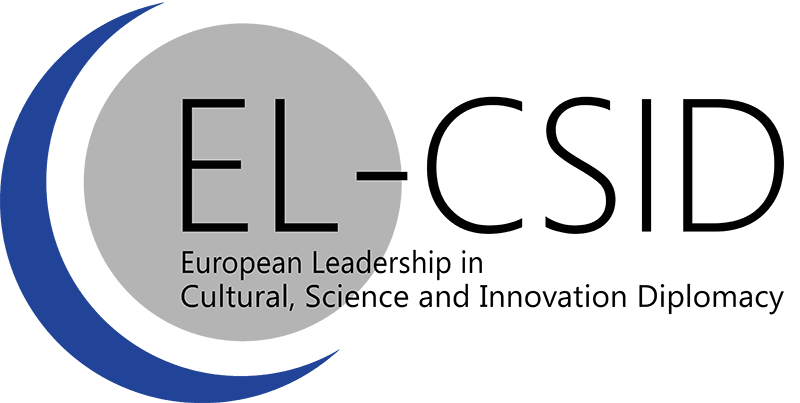Towards an EU Strategy for Cultural and Science Diplomacy that is integrated in the wider Foreign an
- Luk Van Langenhove (Vrije Universiteit Brussel
- 1 mrt 2016
- 3 minuten om te lezen

On March 1, 2016 a new Horizon 2020 research project is launched with the title “European Leadership in Cultural, Scientific and Innovation Diplomacy” (EL-CSID). The project brings together nine academic institutions that will study different aspects of Cultural, Science and Innovation Diplomacy over a three year period.
As a main ambition, the project aims to contribute to a strengthening of EU policy towards the use of science and culture in its wider diplomacy as well as to a deepening of scholarly understanding of diplomacy as an abiding, if changing, institution. Three over-arching objectives will be pursued:
to detail and analyse the manner in which the EU operates in the domains of culture and science diplomacy;
to examine the degree to which cultural and science diplomacy can enhance the interests of the EU in the contemporary world order;
to identify a series of mechanisms, platforms and tools to raise awareness among relevant stakeholders.
At the start of this ambitious project, one can only observe that these objectives are timely as the world seems to go through a series of geopolitical crises and transformations. If the EU wants to continue with its ambition to be a global actor and its commitment to deploy so-called ‘soft power’, it is time to put more meat to the bones of that concept. Indeed, culture, science and innovation can be valuable instruments for the deployment of soft power, but that can only happen in the context of a clear EU strategy towards foreign policy.
To be sure, the EU has a number of strategic tools available for its foreign policy, such as the 2003 European Security Strategy and the more recent identification of strategic partners worldwide. But it is still waiting for a comprehensive EU Global Strategy on Foreign and Security Policy, which is expected to be presented by High Representative Federica Mogherini in June 2016.
One can only hope that the June 2016 document will not be limited to the enumeration of a number of geographical areas of priority (such as an adjornemento of the EU’s neigbourhood policy) or the listing of a number of thematic ambitions (such as maritime and cyber security). What is also needed is an alignment between the overall EU security and foreign policy and the EU’s instruments that can be put to use as soft power tools.
This can only be done in the context of a global and explicit strategy that can be used not only to guide policy decisions but also to steer the allocation of (budgetary) resources. In other words, the EU’s grand strategy on foreign and security policy should not be limited to the functioning of the European External Action Services and the Foreign Affairs Council, but also include references to the whole apparatus of the European Commission, including DG RTD, DG EAC, DG Trade and DEVCO.
In my view, an EU strategy for Cultural and Science Diplomacy that forms an integral part of the wider EU strategy on Foreign and Security Policy, should at least address the following questions:
What is the EU willing to do in the field of cultural and science diplomacy?
What are the capacities of the EU that can be deployed?
How is the EU going to implement its Cultural and Science Diplomacy?
The first of the above questions addresses the EU’s ambitions. Knowing what one wants to achieve is an essential part of any strategy. Only on the basis of a strategic vision, one can set priorities that are in line with the ambitions. The second question refers to the resources that can be deployed. These include both budgetary resources as organisational resources as ambitions need to be matched with money and operational structures. The third question refers to the acceptance of the proposed policies, that is to how the ambitions match with resources can be ‘sold’, both internally to the EU’s member states and externally to those to whom the diplomatic actions are directed.
Crafting such a strategy is a formidable but urgent task if the EU wants to continue to project itself to the outside world as a global and regional power with soft power. We can only hope that the EL-CSID project will generate relevant output and fuel debates that contribute to the development of such an EU Strategy for Cultural and Science Diplomacy.

























Opmerkingen